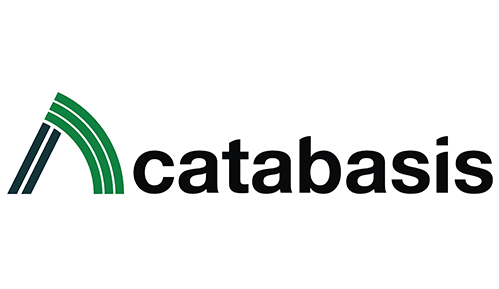
Catabasis Pharmaceuticals today shared information on the edasalonexent program in Phase 3 development for Duchenne in poster presentations at the Virtual 25th International Congress of the World Muscle Society.
The posters include new preclinical research findings supporting potential positive effects on cardiac function and preservation of bone health with edasalonexent in pre-clinical models of Duchenne.
Information from clinical trials with edasalonexent was also presented with baseline assessments from the Phase 3 PolarisDMD trial and long-term safety results from the Phase 2 MoveDMD trial and open-label extension.
Read the Announcement from Catabasis
Catabasis Pharmaceuticals Presents Information On Edasalonexent, A Potential Foundational Therapy For Duchenne Muscular Dystrophy, At The Virtual 25th International Congress Of The World Muscle Society
— New Preclinical Research Indicates that Edasalonexent Could Have Positive Effects on Cardiac Function and Preserve Bone Health —
BOSTON–(BUSINESS WIRE)–Sep. 28, 2020– Catabasis Pharmaceuticals, Inc. (NASDAQ:CATB), a clinical-stage biopharmaceutical company, today shared information on the edasalonexent program in Phase 3 development for Duchenne muscular dystrophy (DMD) in poster presentations at the Virtual 25th International Congress of the World Muscle Society. The posters include new preclinical research findings supporting potential positive effects on cardiac function and preservation of bone health with edasalonexent in mouse models of DMD. Information from clinical trials with edasalonexent was also presented with baseline assessments from the Phase 3 PolarisDMD trial and long-term safety results from the Phase 2 MoveDMD trial and open-label extension.
“As we approach top-line Phase 3 PolarisDMD results, which we expect to report in the fourth quarter of this year, we are pleased to share new findings from preclinical studies with edasalonexent that could support its potential as a foundational therapy for those affected by Duchenne,” said Andrew Nichols, Ph.D., Chief Scientific Officer of Catabasis. “Cardiac function and bone health are critical components of Duchenne care and we are excited to learn more about these key areas that are important to patients, their caregivers and physicians.”
Persistent activation of NF-kB in DMD can drive cardiac dysfunction, which is the leading cause of mortality in DMD. In a preclinical study performed in the laboratory of Pradeep Mammen, M.D., Medical Director of the Neuromuscular Cardiomyopathy Clinic and Director of Translational Research for the Advanced Heart Failure and Transplant Cardiology Program at UT Southwestern, edasalonexent prevented the development of DMD-associated cardiomyopathy in the mdx:Utrn+/- mouse model of DMD. Edasalonexent reduced the cardiac hypertrophy apparent in these mice, reduced myocardial fibrosis and prevented the development of DMD-associated cardiomyopathy.
In DMD, NF-kB activation also drives inflammation and fibrosis, leading to loss of skeletal muscle function and disease progression. Reduced skeletal muscle function results in reduced bone strength. Steroids, which activate the glucocorticoid receptor (GR), can further negatively impact bone health. In a preclinical study led by Frank Rauch, M.D., of Shriners Hospitals for Children – Canada, edasalonexent was seen to maintain bone density and bone strength in mdx mice. Consistent with these results, edasalonexent treatment in cells inhibited NF-kB and as expected did not impact the GR, while the steroid prednisolone strongly activated the GR.
Information from the edasalonexent clinical program was also presented at the Congress of the World Muscle Society. The primary endpoint of the Phase 3 PolarisDMD trial for edasalonexent is the North Star Ambulatory Assessment (NSAA), a validated measure of physical function designed for use in ambulatory boys affected by DMD. In an analysis of baseline characteristics of the patients enrolled in the Phase 3 trial (boys affected by DMD, ages 4 to 7, up to 8th birthday, not on steroids), Catabasis saw reliable and consistent NSAA scores between the two pre-treatment measures at screening and baseline, which indicate no significant learning effect between visits.
An additional evaluation of data from patients at baseline (prior to any treatment) in the Phase 3 PolarisDMD trial was shared by Leanne Ward, M.D., FRCPC, Scientific Director of Ottawa Pediatric Bone Health Research Group. This analysis showed that lean body mass index (a marker for muscle mass) was reduced in young boys affected by DMD and correlated with reduced muscle function. An analysis of the same patients was presented earlier this month at the American Society for Bone and Mineral Research 2020 Annual Conference and showed that DMD has a negative impact on bone strength, including low bone density and mild vertebral fractures at an early stage of disease course prior to any treatment.
As Catabasis has previously presented, the Phase 2 MoveDMD trial and open-label extension was also shared showing that edasalonexent was well-tolerated for up to 150 weeks and associated with favorable growth patterns. The most common related adverse effect was diarrhea, generally mild and transient.
The posters are available to registered attendees during the conference and for three months afterwards. Select posters are available in the “Our Science” section of www.catabasis.com.
About Edasalonexent (CAT-1004)
Edasalonexent (CAT-1004) is an investigational oral small molecule designed to inhibit NF-kB that is being developed as a potential foundational therapy for all patients affected by DMD, regardless of their underlying mutation. In DMD the loss of dystrophin leads to chronic activation of NF-kB, which is a key driver of skeletal and cardiac muscle disease progression. The ongoing global Phase 3 PolarisDMD trial is evaluating the efficacy and safety of edasalonexent for registration purposes. Edasalonexent is also being evaluated in the GalaxyDMD open-label extension trial. In the MoveDMD Phase 2 trial and open-label extension, the Company observed that edasalonexent preserved muscle function and substantially slowed disease progression compared to rates of change in a control period, and significantly improved biomarkers of muscle health and inflammation. The FDA has granted orphan drug, fast track, and rare pediatric disease designations and the European Commission has granted orphan medicinal product designation to edasalonexent for the treatment of DMD. For a summary of clinical results, please visit www.catabasis.com.



 by: Parent Project Muscular Dystrophy
by: Parent Project Muscular Dystrophy

